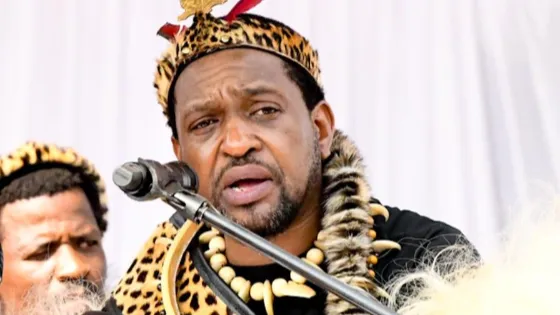Government and traditional leadership unite for rural development in KwaZulu-Natal

King Misuzulu kaZwelithini together with traditional leaders met with Public Works and Infrastructure Minister Dean Macpherson to discuss collaboration on rural development and infrastructure projects in KwaZulu-Natal.
Image: KZN DSAC/ Sphamandla Mbhele
In a move aimed at fortifying the relationship between government and traditional leaders, Public Works and Infrastructure Minister Dean Macpherson and KwaZulu-Natal’s MEC Martin Meyer held a crucial meeting with His Majesty King Misuzulu kaZwelithini and various Amakhosi on Monday.
The discussions centred primarily on collaboration for rural development and infrastructure delivery in the province.
King Misuzulu kaZwelithini expressed his unwavering support for the minister's vision for the Expanded Public Works Programme (EPWP), and recognised its potential to uplift rural communities.
He also endorsed the efforts of the Independent Development Trust (IDT) and the Social Facilitation Framework, which aimed to resolve land-related issues in collaboration with the Department of Public Works and Infrastructure.
The meeting, attended by key leaders including Zimbini Hill, the Chairperson of the IDT, and Dr Msizi Myeza, CEO of the Council for the Built Environment, was marked by constructive discussions that sought to address pressing issues within KwaZulu-Natal’s rural sectors.
Minister Macpherson highlighted the importance of the gathering, and deemed it a historic first step towards enhancing collaboration with traditional leaders for effective service delivery.
“To achieve our development goals, it is essential that we work with His Majesty, King Misuzulu, to uplift the rural communities in KwaZulu-Natal,” he remarked.
The Minister credited the King for the timely engagement, which was vital for ensuring community support for infrastructure projects.
This cooperation was seen as essential to preventing construction stoppages and facilitating the implementation of a reformed EPWP designed to create sustainable employment opportunities for youth.
Minister Macpherson reiterated that traditional leadership played a crucial role in fostering community buy-in for large-scale infrastructure projects, such as schools, police stations, and hospitals.
This sentiment was echoed by MEC Meyer, who highlighted the ongoing initiatives within the provincial Department of Public Works and Infrastructure.
Notable projects included the Nongoma cultural amphitheatre, which exemplifies how state-of-the-art facilities can enhance rural tourism and economic vitality.
“We are committed to improving the infrastructure and lives of the many people who live in rural KZN,” Meyer stated in emphasising the need for local job creation and community empowerment.
Meyer also revealed plans to reclaim hijacked state assets, stressing the importance of returning properties to community ownership. After a recent audit, the province identified a significant concentration of hijacked properties, particularly in Ulundi.
Discussions have commenced with the provincial police to address these unlawful holdings, which represent not only financial losses but also potential havens for criminal activity.
In conclusion, King Misuzulu pledged his participation in launching the pilot EPWP programme in KwaZulu-Natal, further affirming his commitment to resolving land-related matters and advancing rural development alongside the provincial government.
DAILY NEWS